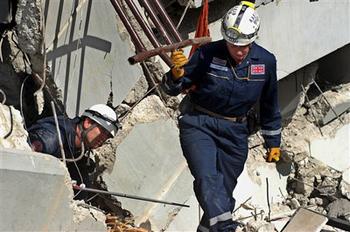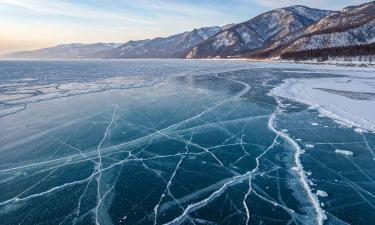Rain, hail and fatal diseases hamper rescue efforts in quake-stricken Pakistan
UN health officials warn of diseases, including malaria, cholera and dysentery, due to a lack of clean water and sanitation
Helicopters resumed delivering urgently needed relief supplies Wednesday to those who survived the weekend earthquake in hard-to-reach areas of Indian Kashmir, after nearly 12 hours of disruption caused by torrential rains and snow, AP said. 
Torrential rain has halted aid efforts in the earthquake-ravaged region of Kashmir, bringing yet more misery to the millions of homeless living in the open.
Asian earthquake levels Pakistan: New photos from the scene
As survivors prayed for food and fresh water, health officials reported another blight on the shattered landscape - an outbreak of fatal diseases. Rain turned roads into rivers of mud and swamped decomposing bodies that lay under rubble and on the roadsides.
UN health officials warned of diseases, including malaria, cholera and dysentery, due to a lack of clean water and sanitation.
With corpses and sewage contaminating the River Neelum, the main source of drinking water in Muzaffarabad, officials said health services had collapsed. "Malaria, gastroenteritis and water-borne diseases have spread in the worst-hit areas," said Khawaja Shabir, the provincial director-general of health. "Whatever water is available is not fit for human consumption."
Dazed, desperate villagers fought over food packages and looted trucks as the first aid reached this devastated city in the mountains of Kashmir. The Himalayan region was hardest-hit by Saturday's magnitude-7.6 quake.
The Pakistani government's official death toll was about 23,000, but a senior army official involved in the rescue operations said that "according to our assessment, the death toll is between 35,000 to 40,000 people." Millions were left homeless after whole communities were flattened in the region touching Pakistan, India and Afghanistan.
Three days after the quake, survivors still were being pulled from the rubble of pancaked schools and houses by British, German, French and Chinese rescue teams. A Red Cross official said people could survive under the rubble for up to five or even seven days.
Source: agencies
Subscribe to Pravda.Ru Telegram channel, Facebook, RSS!





